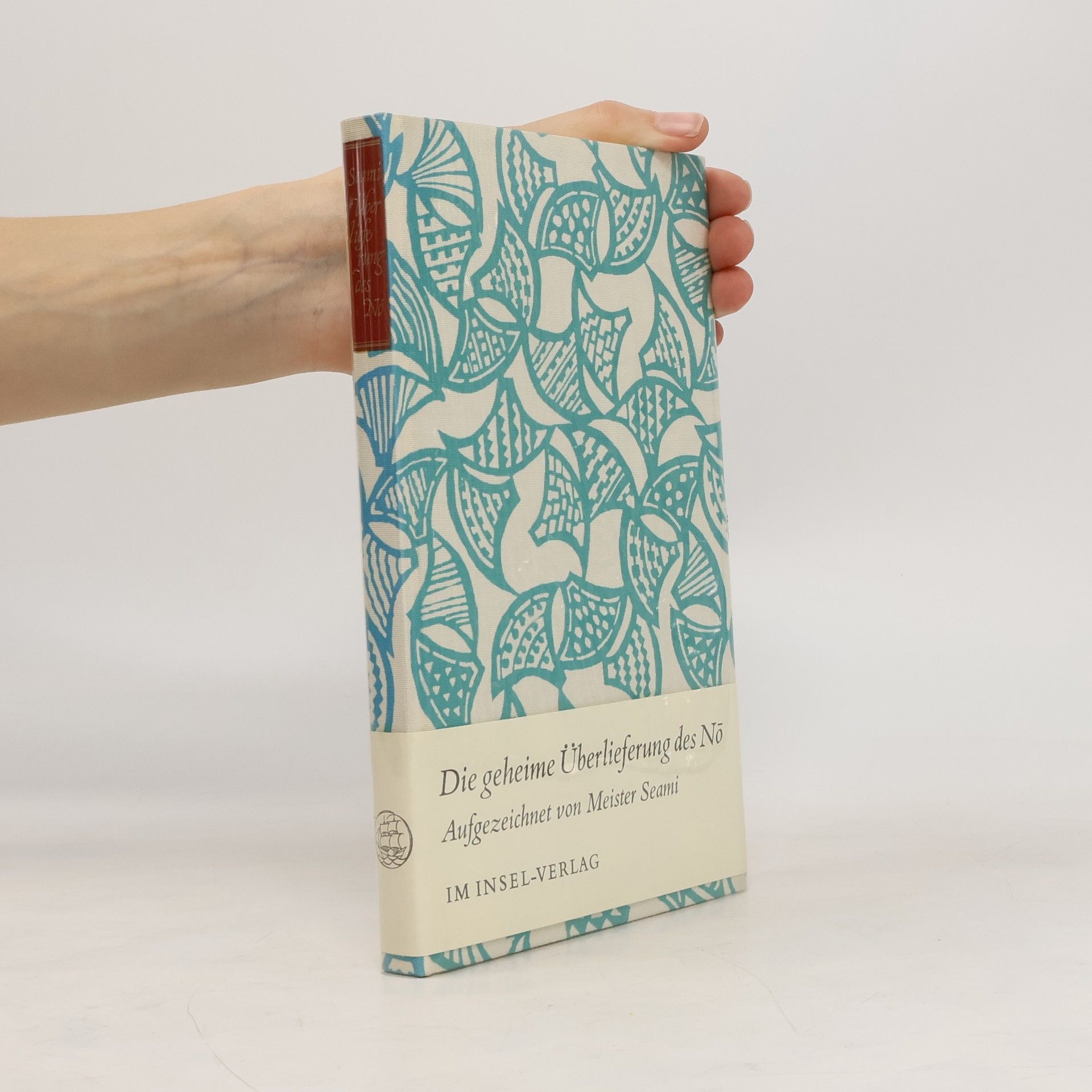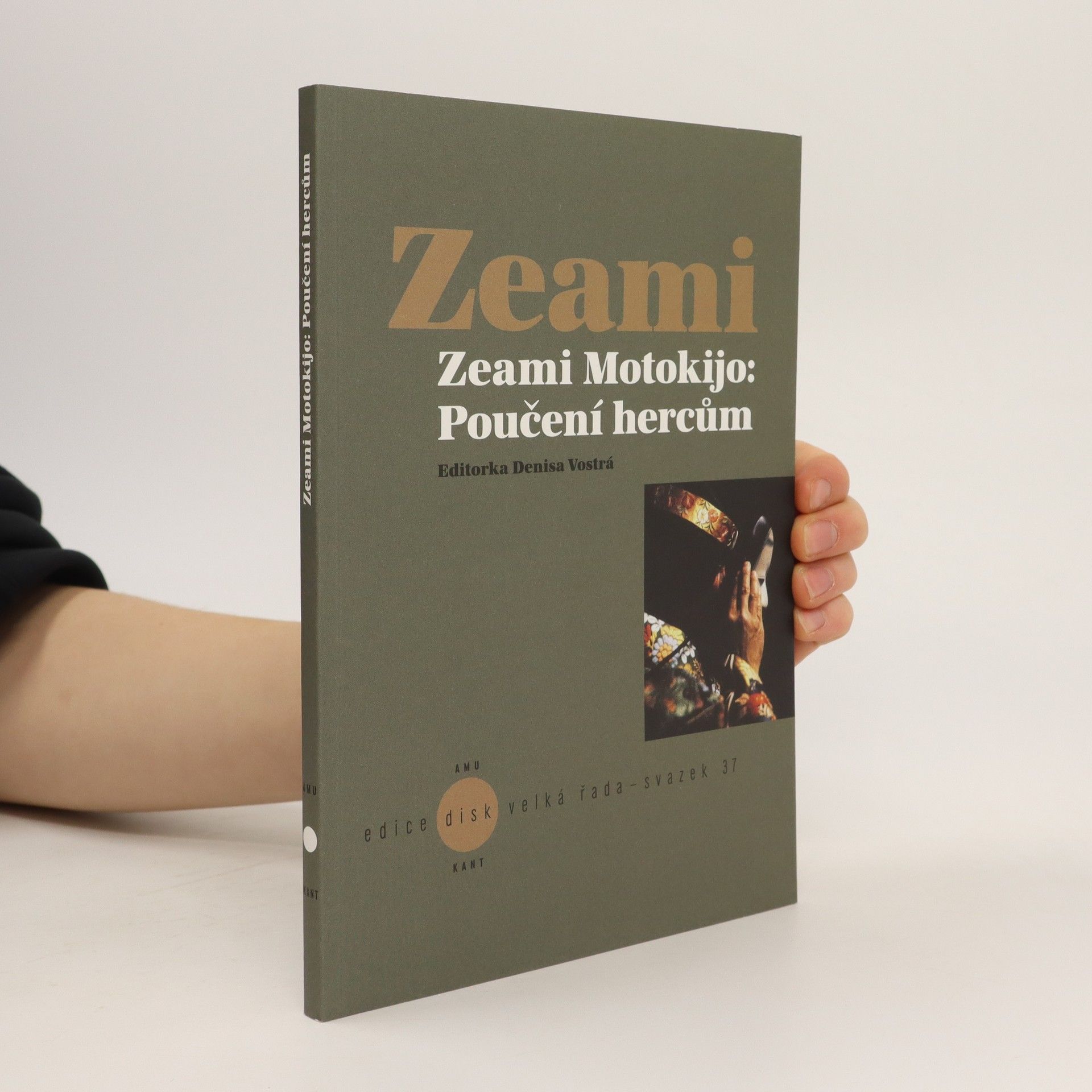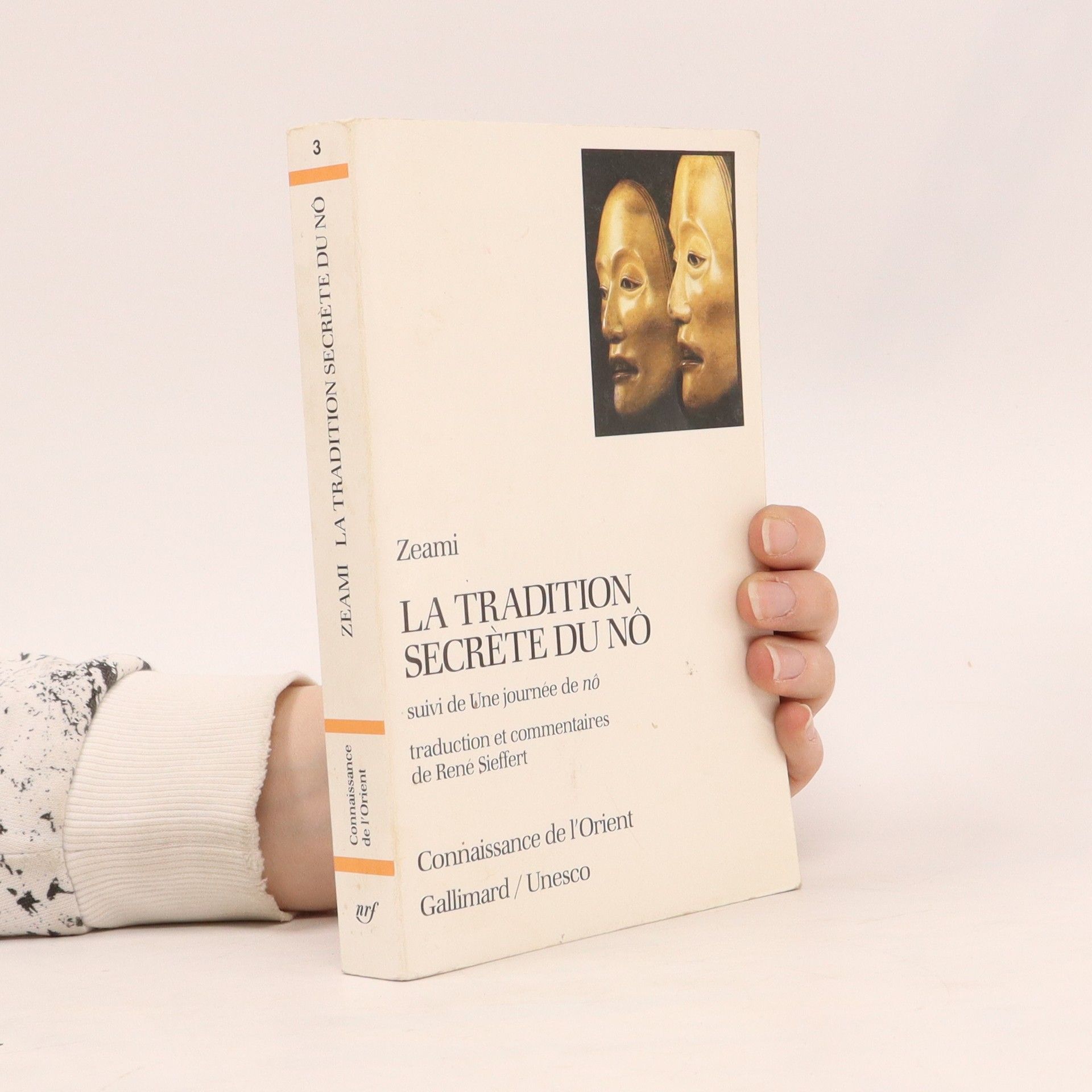Zeami Livres
Kanze Zeami, également connu sous le nom de Zeami Motokiyo, fut un acteur, dramaturge et critique japonais. Ses ouvrages théoriques sur l'art du théâtre Nō sont aussi célébrés que ses pièces. Son influence sur le théâtre japonais perdure.




Zeami Motokijo: Poučení hercům
- 160pages
- 6 heures de lecture
Středověký japonský herec, dramatik a divadelní principál Zeami Motokijo (1363–1443) napsal v první třetině 15. století traktáty zaměřené na hereckou práci v divadle nó a estetiku představení. Podle Zeamiho je podstata vyjádřena nejúspornějším hereckým projevem, který však neprobíhá na úrovni vědomí. Herec se musí nejprve detailně osvojit vnější pohybovou stránku své role, aby se mohl přiblížit k postavě i vnitřně a vytvořit s ní jednotu, na kterou má vliv i publikum. Ve svých poučeních Zeami podrobně vysvětluje, jak kultivovat hercovu mysl a tělo, aby mohlo rozkvést jeho mistrovství. Teprve pak se může projevit skrytá krása júgen, odrážející se v srdcích diváků. Zeamiho traktáty zaujaly západní divadelní svět ve druhé polovině 20. století a v 60. letech inspirovaly mladé tvůrce hledající nové cesty divadelního umění. Je pravděpodobné, že nadšení pro Zeamiho principy pramenilo z schopnosti poválečné generace číst jeho texty moderníma očima a nalézt v nich univerzální postupy. Český překlad vybraných traktátů připravil Ústav teorie scénické tvorby DAMU ve spolupráci japanologů a teatrologů, kteří se zajímají o unikátní formu divadla nó, podrobně představenou v úvodní studii Denisy Vostré.
Die geheime Überlieferung des Nō
- 173pages
- 7 heures de lecture